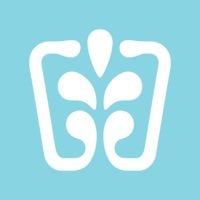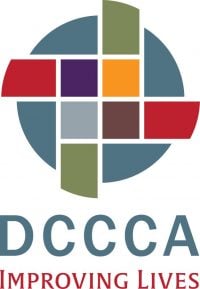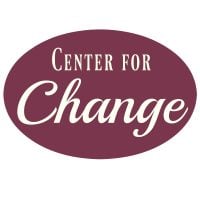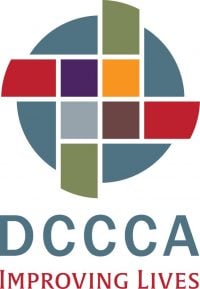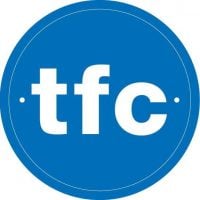
Family Conservancy - Kansas City
Drug Rehab Center in Kansas City, Kansas
- Mental Health
- Dual Diagnosis
Le Flore County Child Guidance is an accredited Addiction Treatment Facility in Poteau, Oklahoma providing personalized care for individuals with drug addiction, dual diagnosis, and mental health issues, utilizing evidence-based practices such as CBT, DBT and relapse prevention techniques to equip clients with the skills needed for lasting sobriety and referring them for aftercare services like sober living arrangements or 12-Step programs.
About This Kansas Facility
Family Conservancy - Kansas City is a premier addiction treatment facility located in Kansas City, Kansas. They offer comprehensive services to those suffering from mental health disorders and dual diagnosis issues, providing a range of outpatient levels of care. Each treatment program is tailored to meet the individual needs of the client and they accept private health insurance. Family Conservancy is affiliated with Family Conservancy, an organization committed to providing education, prevention, and treatment services for mental health and addiction issues.
Family Conservancy - Kansas City provides expert addiction treatment for a variety of substance abuse issues. From initial assessments to evidence-based counseling, clients receive professional care from highly trained and certified clinicians. These clinicians strive to create a safe and caring environment for clients to explore their options and make healthy decisions. Clients also benefit from medication-assisted treatment, relapse prevention, and supportive aftercare services. Family Conservancy - Kansas City is fully licensed and accredited by The Joint Commission; the nation's leading health care accreditation organization. All therapeutic interventions used by the facility are dedicated to providing personalized and effective treatment that promotes long-term sobriety and well-being.
Genders
Ages
Modality
Additional
Conditions and Issues Treated
Levels of Care Offered at Family Conservancy - Kansas City
This center offers a variety of custom treatment tailored to individual recovery. Currently available are Outpatient, with additional therapies available as listed below.
An outpatient treatment program is set up to help with alcohol or drug addiction or a co-occurring disorder. The patient must attend the facility for their therapy and other programs but can return home each night.
The frequency of mandatory attendance decreases after much of Family Conservancy - Kansas City‘s program is complete.
Outpatient treatment is a recovery approach that allows recovering addicts to live at home while getting rehab for addiction
An outpatient can include day treatments which include attending group sessions one hour per week. A person living in an outpatient environment may be allowed the opportunity to work full time if they choose to and continue studies without interruption from drugs/alcohol.
Outpatient treatment is an option for people who want to maintain their careers and families. Outpatients live at home but attend treatment such as individual counseling, group counseling, or twelve-step meetings during the day.
Therapies & Programs
At Family Conservancy - Kansas City , to learn from past mistakes and improve one’s situation, the recovering person meets individually with a therapist. The counselor or therapist will address addiction causes, triggers, mental issues, dual diagnosis, and aftercare plans during this time. This is a very intense and challenging process. Some clients find it easier to open up to someone other than family or friends who understand their struggles with addiction.
Couples therapy sessions are typically used to help couples in recovery from drug addiction work through their issues. These types of sessions can be beneficial for many reasons, including the fact that they add a layer of accountability when both partners in a couple are recovering from addiction.
Therapy can also provide addicts with another effective way to cope with stress and avoid relapse during difficult situations. This type of therapy can help improve communication with their partners, which can strengthen the relationship and prevent future problems that might lead to relapse.
Family therapy is a crucial part of drug treatment and getting sober. It is one of the most effective ways to help addicts stay on the path to long-term sobriety. An addict’s family can play a vital part in helping them to avoid relapse. They can spot the warning signs and help them get back on track.
In group therapy, recovering addicts meet with a therapist and other people in recovery. Some groups are closed, meaning only people who share the same addiction or problem can attend. Others are open to anyone who wants to stop using drugs or drinking alcohol. Group therapy sessions typically focus on one topic each week or month so that recovering addicts can discuss issues they face daily.
Trauma therapy allows people to face and learn from past traumas.
Many people suffer childhood traumas that lead to adult addiction. During treatment at Family Conservancy - Kansas City [/type], you can move forward in your recovery and reclaim your sober future! Trauma is a common cause of psychological disorders like Addiction Disorder. It’s common in Addictive Disorders patients because traumatized people have strong emotions or thoughts that lead to addictive behaviors.
Cognitive Behavioral Therapy (CBT) is based on the idea that how we feel, think and act all interact together. It helps people explore their thoughts for problems (or false beliefs) that influence their mood and actions. CBT is very goal-oriented, which means that the therapist and patient work together on a specific problem. In addition to helping a client focus on thoughts that can be changed, CBT also allows them to take an active role in their treatment. Our thoughts determine our feelings and behaviors; our feelings affect our thoughts, and our behaviors change our thoughts and feelings.
Eye Movement Desensitization and Reprocessing (EMDR) helps people get sober by changing how they experience emotions. During the treatment, the patient is asked to recall specific memories that relate to their addictions; they do this while following a moving object with their eyes or tapping their hands or feet. This process helps the patient work through their emotions by separating the memory from the distress they feel about it.
Payment Options Accepted
For specific insurance or payment methods please contact us.
Is your insurance accepted?
Ask an expert, call (888) 674-0062
Family Conservancy Associated Centers
Discover treatment facilities under the same provider.
Learn More About Family Conservancy Centers
Additional Details
Specifics, location, and helpful extra information.
Kansas City, Kansas 66102 Phone Number(913) 287-1300 Meta DetailsUpdated November 25, 2023
Staff Verified
Patient Reviews
There are no reviews yet. Be the first one to write one.
Kansas City, Kansas Addiction Information
About 42% of adults in Kansas have tried an illicit drug at some point in their lives. 12.4% of the state population uses illegal drugs and 4.5% abuse alcohol in a given year. 15.16% of all deaths in Kansas between 2008 and 2017 were caused by either drugs or alcohol.
Every day in Kansas City, 6 people die from a drug overdose. In 2016, there were 1,521 deaths due to drug overdoses in the city. According to the NSDUH, 5.43% of adults reported using illicit drugs. Addiction is a chronic, relapsing brain disease that is characterized by harmful consequences. Common treatment options in Kansas City, KS, include inpatient or residential treatment, outpatient treatment, and 12-step programs.
Treatment in Nearby Cities
- Chanute, KS (107.5 mi.)
- Coffeyville, KS (152.2 mi.)
- Great Bend, KS (225.2 mi.)
- Greensburg, KS (270.0 mi.)
- Kansas City, KS (4.1 mi.)
Centers near Family Conservancy - Kansas City

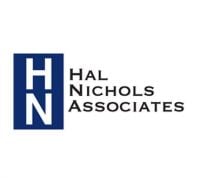

The facility name, logo and brand are the property and registered trademarks of Family Conservancy - Kansas City, and are being used for identification and informational purposes only. Use of these names, logos and brands shall not imply endorsement. RehabNow.org is not affiliated with or sponsored by Family Conservancy - Kansas City.

